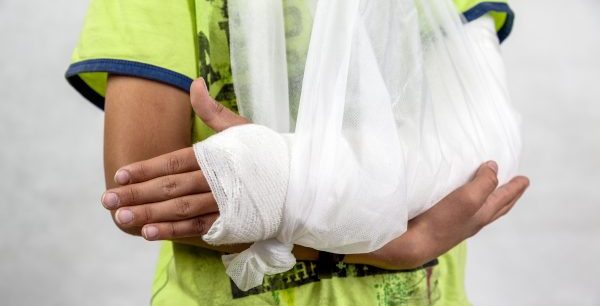Children are prone to an overabundance of accidents and injuries, such as day care injuries, car accidents, playground accidents, swimming pool accidents, and more. Since the law recognizes that children lack the mature judgment that adults typically have, it provides a separate set of rules and requirements when it comes to making a personal injury claim for minors. This means that the claim process is not the same as it would be for an adult.
If your child was recently injured in an accident, be sure you are aware of your rights as a parent of an injured child, as well as, the rights your child has as an injured victim. This can help you pursue a claim for compensation. Continue reading to learn more about personal injury claims for children, including the primary differences in law and where to get started.

Indiana Child Injury Lawyers 317-881-2700
Child Injuries and Accident Claims
Most states provide laws that give children essentially the same rights to compensation as they do adults for accidents that involve personal injury. Although these laws differ from state to state, children injured negligently in accidents can pursue compensation for pain, suffering, permanent disability, and more, and parents may be eligible to receive compensation for medical bills and any other related expenses on the child’s behalf. Under such laws, parents and legal guardians are permitted to negotiate or file on behalf of their children as well.
When it comes to making a personal injury claim for your child, the best course of action is to contact a licensed Indianapolis child injury attorney as soon as possible to learn everything you need to know about your potential case. As mentioned, there are some key differences in laws and procedures for child injury claims, which can make it challenging for you to understand without professional counsel.
For instance, the statutes of limitations for making a personal injury claim is much longer for child cases than it is for adult cases. Additionally, courts recognize that child injury lawsuits are delicate and complicated, so they oversee these types of cases more carefully than they would otherwise because they are looking out for the best interests of the child.
Furthermore, courts must approve all settlements in child injury cases. They know that rewarded compensation can potentially be misspent by parents or guardians. So they will sometimes order for the compensation to be put into a safe investment or account until the child reaches adulthood. Then once a minor turns 18, they are either given full access to the funds or structured payouts.
Key Questions to Ask Regarding Your Child’s Accident
Here are some important questions to ask yourself when making a personal injury claim for your child’s accident:
✏ “Why Did My Child Get Hurt?”
✏ “How Did My Child’s Injury Happen?”
✏ “Who Was Responsible for My Child When He or She was Injured?”
✏ “Could the Accident Have Been Prevented?”
Indianapolis Child Injury Lawyers You Can Trust

Indianapolis Personal Injury Lawyers 317-881-2700
